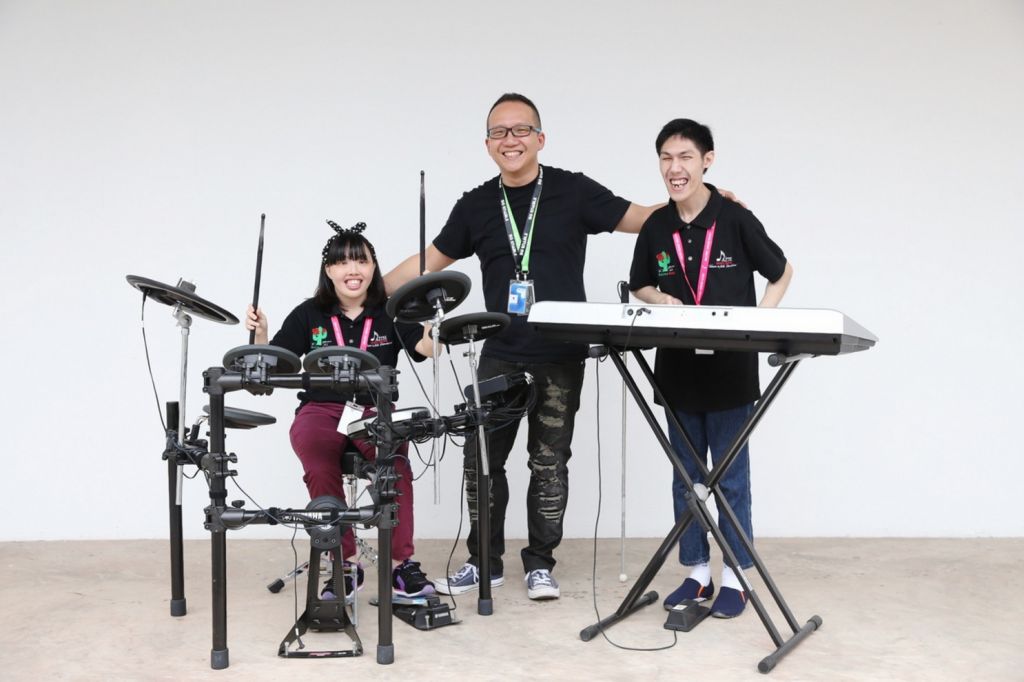
SINGAPORE — Rejected from a music school because she was told that she did not have a sense of rhythm, Ms Jamie Lopes-Lam had to give up her dream of playing the drums until Faith Music Centre (FMC) came along. The centre offers music lessons for people with disabilities.
On Friday (Aug 25), the 22-year-old, who has an intellectual disability, and her band Cactus Rose, will perform from 10am to noon at Enabling Village in Lengkok Bahru.
Following that music school’s rejection when she was just a child, her parents decided to stop Ms Lopes-Lam from pursuing her musical dream even though they knew how much she loved the drums.
As a child, Ms Lopes-Lam would bang on her parents’ pots and pans with chopsticks until they were dented and scratched.
The young woman got a second shot at chasing her dream after she and her parents met Mr Alvin Yeo, FMC’s founder, at the SG Enable’s annual Training and Career Fair in 2014.
He took Ms Lopes-Lam, whose disability makes it difficult for her to study and interact socially, under his wing immediately.
“I saw Jamie differently — as an undiscovered and untried talent. Just because someone is (disabled), it does not mean they do not have other abilities,” said Mr Yeo, 45.
Today, Ms Lopes-Lam is the drummer for Cactus Rose, which includes fellow disabled musicians, under FMC.
Cactus Rose made its debut in front of 130 people at “Cactus Rose in Concert: Disability is Not a Barrier to Learning” on Saturday. The concert, which was supported by the TODAY Enable Fund, was held at UOB Ability Hub in the Enabling Village.
Following a performance on Friday, the band will perform at the Singing Lotus Concert at Ling Kwang Home on Sept 15.
The seven-piece band — comprising persons with various disabilities, including visual impairment, autism spectrum disorder and development disability — was formed two years ago. The group performs a range of musical genres, including modern pop and oldies, at nursing homes and non-profit events.
When the band members came together, they did not talk to one another, as many of their disabilities inhibited them from socialising in the usual way, said Mr Yeo.
Getting them to interact and familiarise themselves with one another could be done only through music, by pairing their instruments and synchronising in song: Drummer to bassist, guitarist to vocalist.
Eventually, with tri-weekly sessions, for three hours each time, the members started forming strong friendships.
To ensure that Cactus Rose can hold its own against any other able-bodied musical band, Mr Yeo also makes it a point to give the band non-customised instruments.
“If a company wants to hire them, they won’t care about their disabilities. If you put certain marks on their instruments (to assist them), what will happen on a real stage that we have to be on, without their usual tools?”
He added: “I believe everyone can learn, maybe they just learn differently and at a different pace.”
FMC, which was set up nine years ago originally to train musicians to perform at nursing homes, began opening its doors more to people with disabilities three years ago, with the assistance of SG Enable’s training grant for the disabled.
The majority of the FMC’s 100-plus student cohort is now made up of disabled students.